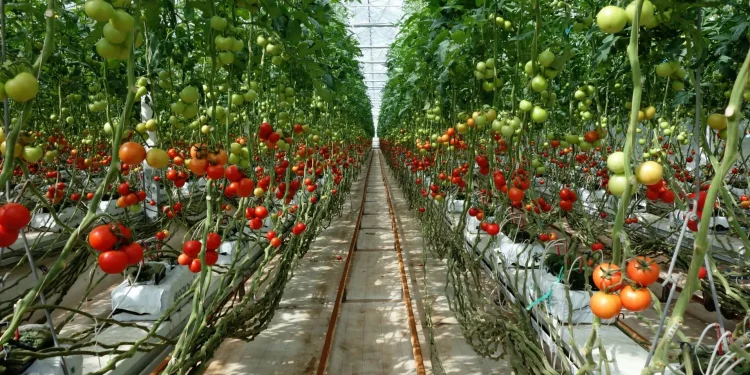The British tomato industry is currently facing significant challenges due to ongoing delays in seed imports, which are adversely affecting growers and threatening the economic stability of the sector. These delays stem from changes in import regulations following Brexit, which have introduced more stringent testing and release protocols at the border. The impacts are being felt across the industry, with extended delivery times for tomato seeds delaying planting schedules and, subsequently, the timely delivery of plants to growers.
Growers report that seed deliveries have been delayed by up to six weeks, a situation primarily attributed to the extended turnaround times for pathogen testing. These delays disrupt crop programming and planning, causing considerable economic strain on businesses that already operate under tight timelines and narrow profit margins. The unpredictability of these delays makes it difficult for growers to manage their operations efficiently, especially given the late contract placements by UK retailers that historically push back the ordering of specific cultivars.
The current import protocols require tomato seeds of European origin to undergo pathogen testing in the UK, despite being certified as disease-free before dispatch. This redundant testing process not only slows down the supply chain but also discourages European seed suppliers from sending seeds to the UK, particularly for smaller batches intended for variety trials. The situation is exacerbated by the fact that a significant number of seeds are destructively tested before they are released by the UK Plant Health and Seeds Inspectorate (PHSI), further reducing the availability of critical planting material.
The British tomato industry is working closely with partners such as the National Farmers’ Union (NFU), the Department for Environment, Food & Rural Affairs (Defra), and the Animal and Plant Health Agency (APHA) to find solutions to these challenges. There is an urgent need for a reciprocal phytosanitary agreement with the EU to streamline the import process and reduce delays. Additionally, industry leaders are calling on UK retail customers to support growers by finalizing contract agreements for the 2025 season by the end of September 2024, allowing for better planning and mitigation of potential delays.
To address the current crisis, the industry is taking several steps:
- Assessing Impact: Collecting data on the experiences of growers to identify where delays occur and their severity.
- Engaging with Fera Science Ltd: Working to resolve testing delays and improve the efficiency of the import process.
- Collaborating with NFU and Government Bodies: Highlighting the issue as a major economic concern and pushing for reforms to make the process more sustainable and predictable.
- Forming a Forum: Creating a platform for all protected edible growers to share their experiences, with the goal of presenting the gathered data to Defra.
The industry’s immediate needs include the development of an assured fast-track process for tomato seed imports, alongside broader reforms to streamline and clarify existing protocols. This would help minimize delays, ensure biosecurity, and provide growers with the predictability they need to manage their operations effectively. The potential financial, management, and crop scheduling issues caused by these delays are significant, and without swift action, the future of the UK tomato industry could be at risk.










